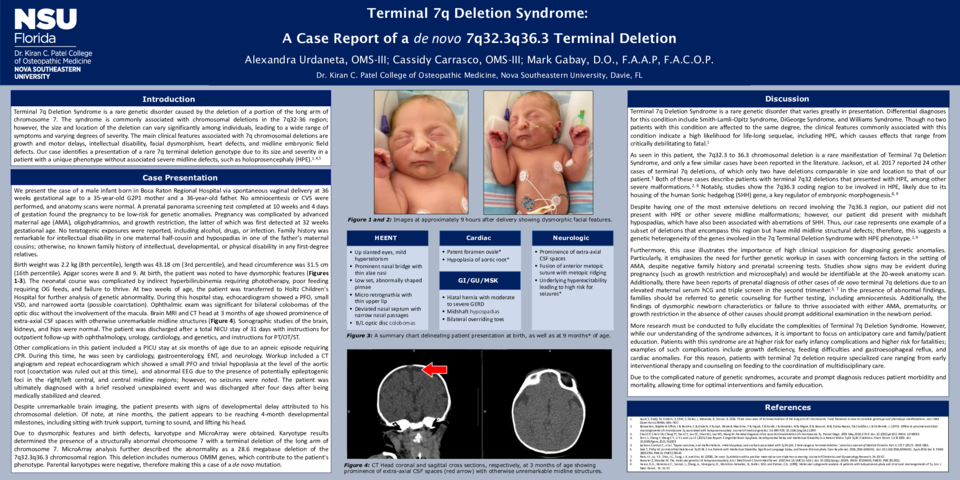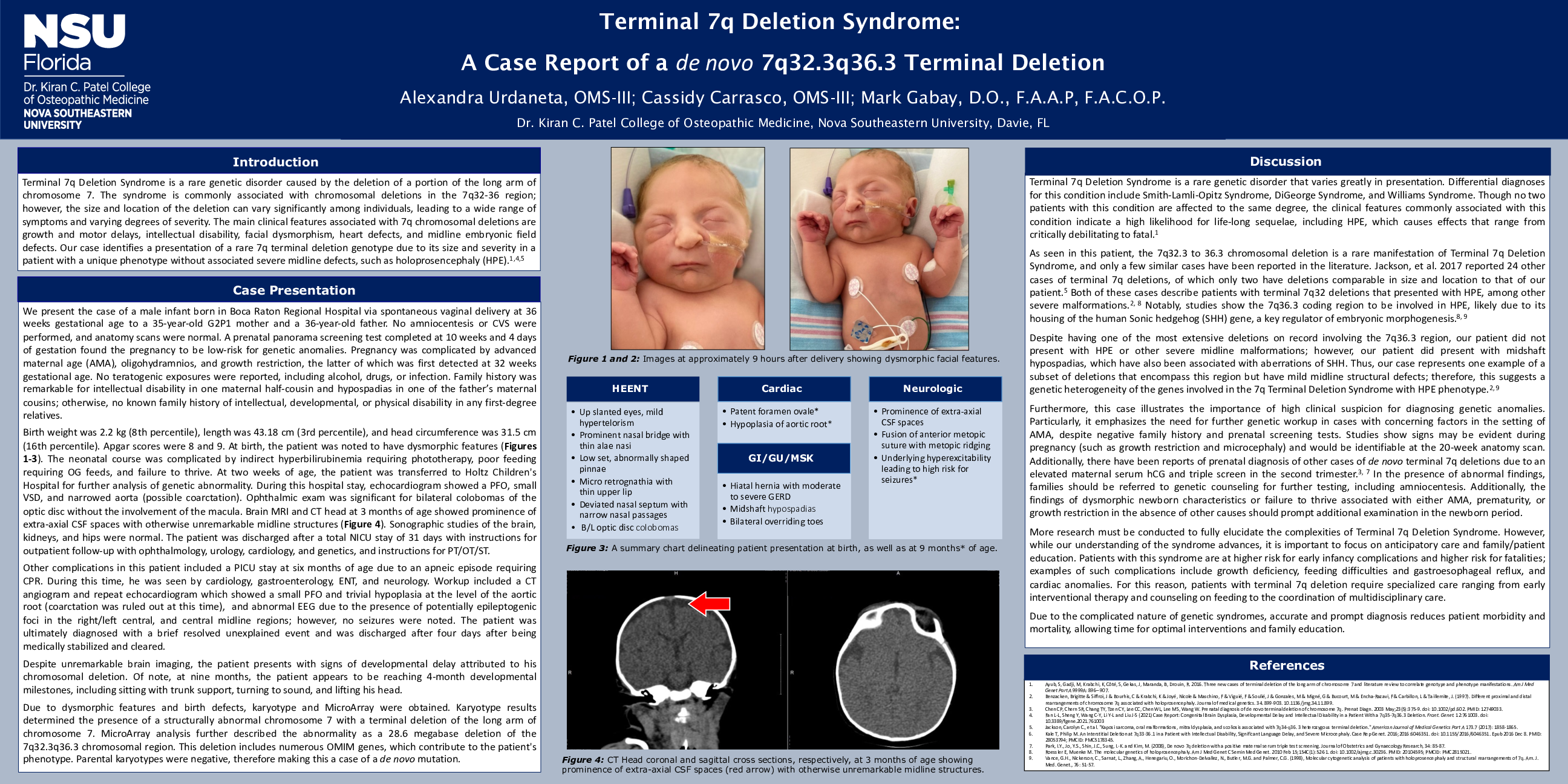Abstract
Introduction: Terminal 7q Deletion Syndrome is a rare genetic disorder caused by the deletion of a portion of the long arm of chromosome 7. This case report aims to highlight the unique case of a child with a de novo terminal 7q deletion to describe the presentation, delineate management, and emphasize the importance of accurate and prompt diagnosis to improve outcomes in these patients.
Case Description: We present the case of a male infant born via spontaneous vaginal delivery at 36 weeks gestational age to a 35-year-old G2P1 mother. Anatomy scans and prenatal screenings were normal. No amniocentesis or CVS were performed. Pregnancy was complicated by advanced maternal age (AMA), oligohydramnios, and intrauterine growth restriction. Dysmorphic features noted at birth included up-slanted eyes with mild hypertelorism, micro-retrognathia, and hypospadias. The patient's presentation prompted karyotype and MicroArray analysis, which found an abnormality on the long arm of chromosome 7. This was further described as a 28.6 megabase deletion of the 7q32.3 to 36.3 chromosomal region, one of the most expansive deletions on record.
Further workup results included unremarkable brain MRI and CT. Despite this, the patient presents with signs of delay in developmental milestones and other complications attributed to his chromosomal deletion.
Discussion: This case illustrates a unique presentation of Terminal 7q Deletion Syndrome in a patient with a severe terminal 7q deletion without severe midline defects, such as holoprosencephaly (HPE). While commonly seen in this patient population, our patient's absence of midline defects suggests a genetic heterogeneity of the genes involved in the 7Q Terminal Deletion Syndrome with HPE phenotype.
Furthermore, this case highlights the importance of promptly diagnosing genetic syndromes to reduce patient morbidity and mortality. Particularly, it emphasizes the need for further genetic workup in cases with concerning factors in the setting of AMA, despite negative family history and prenatal screening tests. While our understanding advances, it is crucial to focus on anticipatory care and family/patient education.






